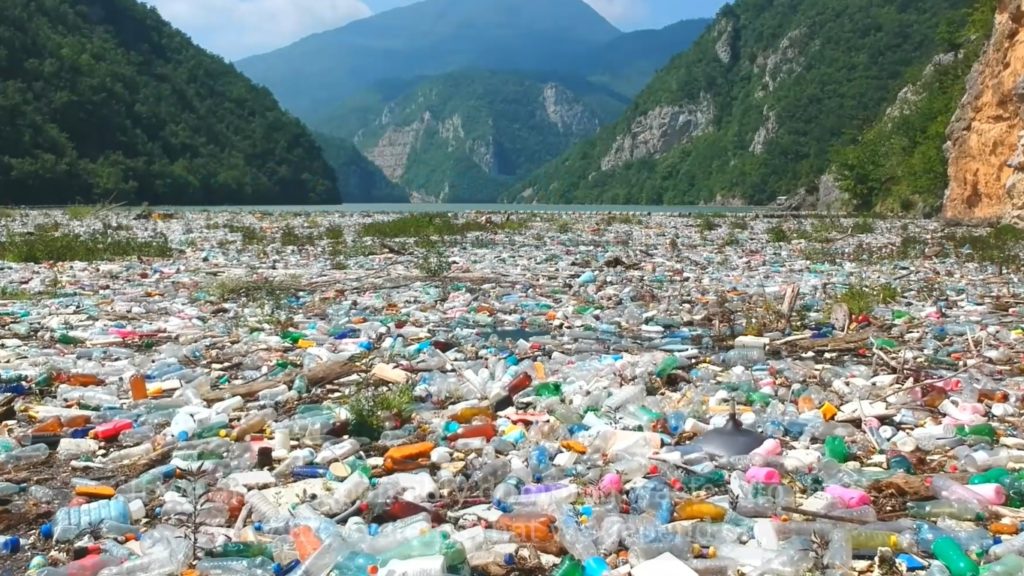
From cutting carbon to pricing plastic

Plastic credits fund pollution removal
- Dateline
- 5 May 2025
Thanks to renewable energy and cleantech investment, there’s a noticeable decline in carbon emissions worldwide, and interest in reducing carbon dioxide in an attempt to control the climate is waning fast. It seems targeting ‘net zero’ has lost its popular appeal.
Now eco-warriors have real pollution in their sights, and plastic is Enemy Number #1. Plastics account for over 80% of ocean pollution, and robotic clean-up barges have hardly made a dent in the surface debris, to say nothing about nurdles and micro plastics at depth. Bioplastics and organic polymers that are compostable are one – costly – solution, but what about the gigatons of existing plastic waste that we keep adding to daily?
Three years ago, University of Texas researchers engineered an enzyme called FAST-PETase that literally eats consumer plastics and turns them into harmless chemicals in a few days. The trick was then to insert this enzyme into some fast-reproducing bacteria, to make it viable on an industrial scale.
Now we have genetically engineered microbes that gobble up mountains of plastic in record time. But that’s not all! These same bacteria can also recycle untreated plastic, turning it back into base chemicals for the production of new virgin polymers. The process is competitive with making them out of fossil fuel feedstocks, and is set to be a game-changer in the petrochemical industry.
There’s only one piece missing, the funding and incentives for this virtuous cycle, and that’s where plastic credits come in. Even in 2025, it’s still cheaper to dump plastic than recycle it, but manufacturers are now obliged to buy plastic credits to cover the environmental costs. With FAST-PETase bacteria and plastic credits, the solution to pollution is finally here!
Links to related stories
- Waste plastic broken down not in centuries but in days by an AI-engineered enzyme – Daily Kos, 2 May 2022
- New Enzyme That Breaks Down Plastics May Boost Plastic Credits – Carbon Credits, 2 May 2022
- Bottled water monopolist admits recycling is bullsh*t – Cory Doctorow, 26 April 2022
- Mindbullet: Natural is the new synthetic (Dateline: 29 May 2030)
- Mindbullet: Plastic unfantastic (Dateline: 29 January 2018)
Warning: Hazardous thinking at work
Despite appearances to the contrary, Futureworld cannot and does not predict the future. Our Mindbullets scenarios are fictitious and designed purely to explore possible futures, challenge and stimulate strategic thinking. Use these at your own risk. Any reference to actual people, entities or events is entirely allegorical. Copyright Futureworld International Limited. Reproduction or distribution permitted only with recognition of Copyright and the inclusion of this disclaimer.